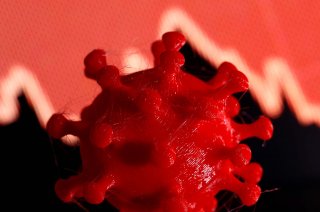New Study Finds Immunity to Coronavirus Can Linger for Months
Researchers have discovered was that there was a sizable 26-percent decline in coronavirus antibodies just within three months.
For the vast majority of individuals who have been infected with the novel coronavirus, immunity to the disease will last for at least five months, according to a new study conducted by the Icahn School of Medicine at Mount Sinai.
The research findings, which were published in the journal Science, added that 90 percent of people who recover from the virus are able to develop a stable overall antibody response.
In making its conclusions, the team examined more than 30,000 coronavirus-positive patients and then closely studied 121 patients who recovered and donated their plasma at various months.
“While some reports have come out saying antibodies to this virus go away quickly, we have found just the opposite—that more than 90 percent of people who were mildly or moderately ill produce an antibody response strong enough to neutralize the virus, and the response is maintained for many months,” the study’s co-author Florian Krammer, a professor of vaccinology at the Icahn School of Medicine at Mount Sinai, said in a release.
“Uncovering the robustness of the antibody response to SARS-CoV-2, including its longevity and neutralizing effects, is critically important to enabling us to effectively monitor seroprevalence in communities and to determining the duration and levels of antibody that protect us from reinfection. This is essential for effective vaccine development.”
One such report, which came out of Britain earlier this week, stated that immunity against the coronavirus gradually wears off as patients recover from the disease. The research—available in a pre-print report and will eventually be submitted for peer-review—gathered results of more than 365,000 home finger-prick tests that were given out randomly in England.
What the researchers discovered was that there was a sizable 26-percent decline in coronavirus antibodies just within three months.
Although the new study may seem to contradict other research that has delved into the connections between coronavirus infections and immunity, the Mount Sinai researchers noted that there is more than one wave of infection control in the human body.
After an initial infection, the body generates large amounts of immune compounds that often die off quickly. Studies that show declining antibody response in the first months after infection might be only measuring this first wave because the body is still busy at work building up new lines of defense.
“Although this cannot provide conclusive evidence that these antibody responses protect from reinfection, we believe it is very likely that they will decrease the odds ratio of reinfection,” the study’s authors wrote.
Other medical experts admit that there is still so much unknown about the virus. But the fact that there is some semblance of robust immunity after infection is positive news ahead of a possible green-lighting of a viable coronavirus vaccine in the coming months.
“I think, at this point, we are still trying to figure out the immunity question, but the recent study is encouraging. Unfortunately, this might be a question that only gets answered as time passes,” Dr. Jason Keonin, of Northwest Iowa Surgeons PC in Spencer, Iowa, told The National Interest.
“I think most scientists and doctors believe that immunity will last at least long enough to make vaccines effective, at least in the short term, which would still make a huge impact.”
Keonin was impressed by the data from Mount Sinai’s study but added that “it’s still important to emphasize that we need to suppress the virus.”
“From what we know now, there’s no guarantee that someone who has been infected or receives the vaccine will be immune forever, so attempting a herd-immunity approach could fail and be disastrous,” he said. “We must take steps to mitigate and suppress the virus while we wait for more research and vaccines.”
The controversial herd-immunity approach—similar to what was pursued in Sweden—aims to have enough people within a population become immune to a disease, often through vaccination or natural infection, to make its spread unlikely. As a result, the entire community is protected, even those who are not themselves immune, according to Harvard Medical School.
The threshold for herd immunity to the coronavirus is estimated between 60 percent and 80 percent of the population.
The United States, however, is nowhere near that level, even though more than nine million people have tested positive for the virus and nearly 230,000 have died since the pandemic began, according to the latest data from Johns Hopkins University.
“If we’re waiting until 60 percent to 80 percent of people have it, we’re talking about 200 million-plus Americans getting this—and at a fatality rate of 1 percent, let’s say, that’s two million Americans who will die in this effort to try to get herd immunity,” Dr. Leana Wen, an emergency physician and former health commissioner for the city of Baltimore, said in an interview last month.
“Those are preventable deaths of our loved ones that we can just not let happen under our watch.”
Ethen Kim Lieser is a Minneapolis-based Science and Tech Editor who has held posts at Google, The Korea Herald, Lincoln Journal Star, AsianWeek, and Arirang TV. Follow or contact him on LinkedIn.
Image: Reuters

